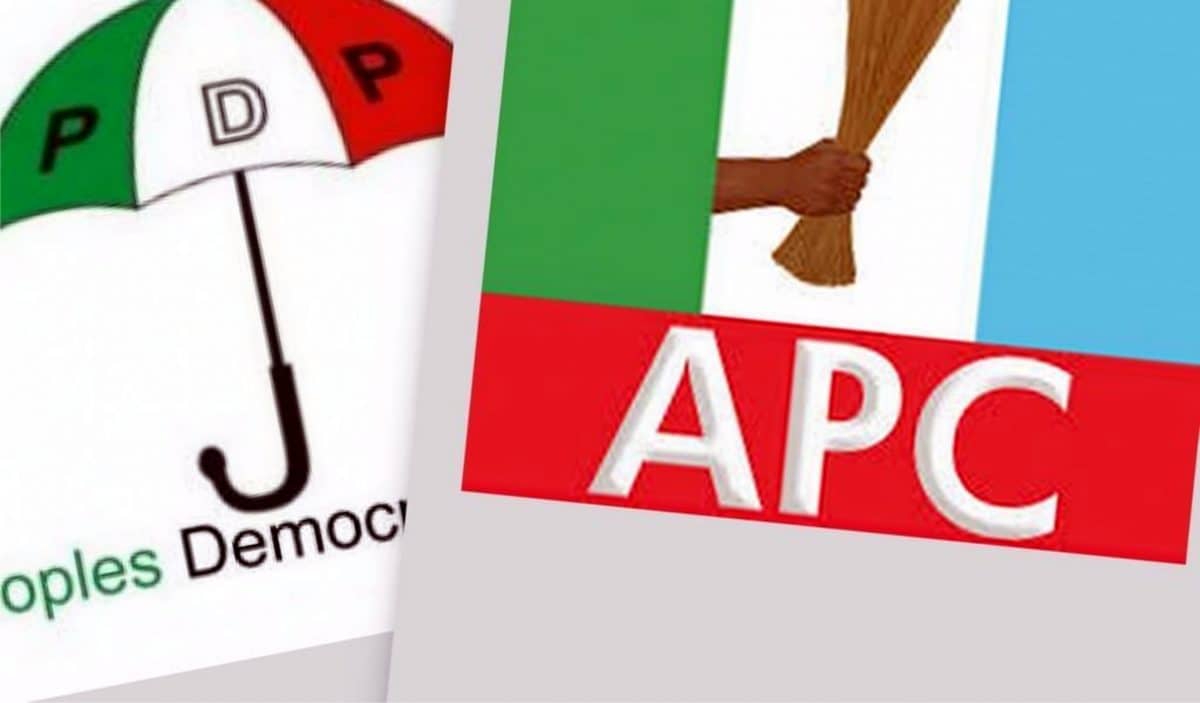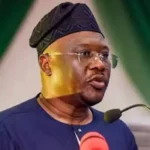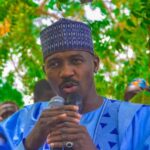In a paraphrase of the old Hausa adage, let us say that there is no bad government but bad opposition. The APC government is in a deeper crisis than they would admit. A damaging leadership crisis and paralysis has engulfed the APC lately. In just the past few weeks, the APC has treated Nigerians to what political banditry looks like in public with various factions and counter-factions openly stabbing each other in the back, and all in the selfish interests of a few who are determined to steal power from under feet of an outgoing president, and by implication, from the Nigerian people.
In government, the situation is just as bad for the APC, if not worse. Anyone living in Nigeria now would feel that governance has collapsed as a multitude of extreme conditions pile on the country. The national power grid failed twice in a week, and with it, blackouts everywhere. Acute scarcity and rising prices of petrol, diesel and aviation fuel have combined to ground businesses, big and small. These, in turn, have fuelled rising food prices and general inflation, resulting in job losses and deepening poverty in the land. But in an election year, we should perhaps be more concerned about the party in opposition than the one in government. So, where is the PDP?
Democracies appoint just one function to political parties: to govern or to oppose the government. The difference between the two is of course winning an election. Everything else political parties do is about winning the next election in order to form the next government and govern. Nothing else matters more than this, or should. So, what has the PDP done? What is it doing to upstage the APC in the eyes and minds of Nigerians in such a fast-paced and action-packed election year?
Winning an election is not an easy thing to do anywhere. Forming the government and actually governing are still more daunting. But doing the job of an opposition party is by far more tasking than all. Governing requires one set of skills, not least the collective ability of a party and its leading politicians to transform vision into practice. But opposing the government requires a different set of skills altogether. Political parties must have both sets of skills to lead effectively and stay in power or to bounce back at the next turn after defeat in the last contest.
Since 2013 when the APC emerged as a serious contender for power against the PDP, and today after seven years of the APC government, a clear pattern has formed about what each of these parties can do better than the other. The APC were better as an opposition party. They were quite good at seizing the moment to stick the knife in, as then ruling PDP reeled from one self-inflicted wound to another. By late 2014, the APC had all but won the election. Today, the roles have been reversed. The APC has proved far less capable at governing than they were at opposing the government. Yet, the PDP has not been an effective opposition. Why so?
Defeating an incumbent party is always the result of a complex matrix of issues and events. So, it is difficult to say which single blow broke the camel’s back. But as an opposition party, the APC did three things right that the PDP have not now learned to do, seven years into the wilderness of opposition politics in a place like Nigeria.
First, contrast is a powerful force in politics. In fact, it is often all that matters between one political party or candidate and another in an election contest. Many political historians agree that the sharp contrast between what democracy and capitalism looks against communism and socialism as presented in Hollywood films and other western cultural forms were decisive in the contest of global supremacy between the U.S and its allies and the now defunct USSR. The point is that between 2013 and 2015 at least, the APC managed to draw a sharp contrast between itself and the then ruling PDP. APC offered an alternative vision of Nigeria to Nigerians and in a simple and uncomplicated way that most Nigerians could relate to.
In my view, the ability of the APC to create and sustain this contrast between it and the PDP was perhaps their greatest achievement as an opposition political party. Of course, other circumstances and the general atmosphere of the elections, particularly the internal crises within the PDP at the time which were not helped by the rather truculent personality of the then PDP Chairman, Alhaji Bamanga Tukur, were important to how Nigerians received the APC message. But more important still was how the APC delivered the message.
APC opposition political communication had three characteristics. The message was delivered piecemeal, rather than in one fell swoop during the campaign period that is the only hope of the PDP now. At every turn and for every government action, then opposition spokesman, Alhaji Lai Mohammed had a sharp and crisp comment that resonated with Nigerians and helped build momentum over the years. Many Nigerians began to take them more seriously over time.
Also, the APC message was not always presented in words. Internal events and actions of party members were also important. The APC made sure that negotiations for merger between all the various opposition wings were widely publicised. And during the convention and primaries, the processes were largely transparent and rancour free. This drew more and more people to them, including the New PDP group whose support would prove crucial in slaying the PDP elephant. Moreover, the APC presented themselves as being together and one with ordinary Nigerians suffering under the bad government of the PDP. They staged protests or joined in those staged by various Nigerian groups.
Second, the APC also got the policy message right. Even before their flagbearer was decided and long before the elections, they promised a Nigeria free of corruption, insecurity and economic paralysis. This simply helped them reinforce the message that they are different from the PDP and that they are an alternative government in waiting that Nigerians should consider. Given what we have seen of the APC government so far, did they deceive Nigerians when they made these policy promises? I don’t think so. It is more probable that they did not prepare, and they did not prepare because Nigerians did not pause to ask them how they were going to get these things done.
Third, the APC got the right candidate for the moment. It is true that President Buhari has more or less now been demystified. But as a presidential candidate in 2003, 2007, 2011 and 2015, he was quite a towering figure. He had the name recognition that only very few people in the PDP today can match, with the exception of former Vice President Atiku Abubakar. In fact, Buhari as a presidential candidate is no match even for Buhari as president. But all of these only lead us back to the PDP. What they do, or don’t do, between now and December will decide everything. Time is already running out for them.

 Join Daily Trust WhatsApp Community For Quick Access To News and Happenings Around You.
Join Daily Trust WhatsApp Community For Quick Access To News and Happenings Around You.


